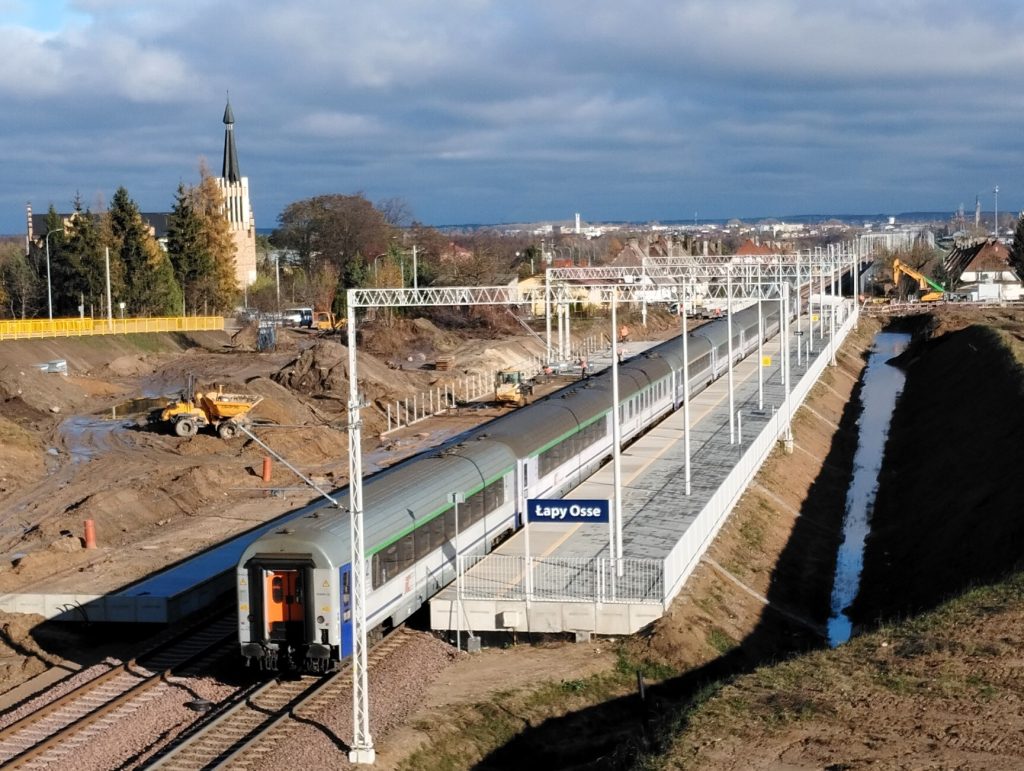Poland is developing high-speed lines with the help of Spain.

Centralny Port Komunikacyjny (CPK) has signed a memorandum of understanding with ADIF, the Spanish national railway infrastructure manager, with the aim of strengthening strategic cooperation between the parties in the development of Poland’s high-speed rail network.
ADIF is one of the most experienced HSR infrastructure managers on the European continent, while Spain’s HSR network is the longest in Europe, with almost 4,000 km of existing lines and another 1,600 km in the planning phase.
Under the agreement, CPK and ADIF will collaborate on several initiatives. These include running joint training programmes focusing on rail market liberalisation and organising study visits to explore topics such as track laying on HSR lines, as well as upgrading signalling systems and telecommunications infrastructure. In addition, the partnership will include mutual technical consultations to support the development and modernisation of the rail network, including the implementation of a 2x25kV traction power supply system. Both parties will also support each other in planning and design, strengthening their commitment to the development of rail infrastructure.
`We have been working with the Spanish railway industry since 2021. This collaboration has led to the development of our HSR standards, which we are now sharing with our partners in the CEE region. I am convinced that working with ADIF will be a significant next step in gathering the best and most direct know-how that will make rail transport more accessible, more competitive and more open to meeting passenger needs. We appreciate that the work between ADIF and CPK is raised to the next level,” said Mikołaj Wild, CEO of CPK. Poland and Spain have been working on the development of HSR in Poland under an intergovernmental cooperation agreement (MoU) concluded in May 2021.
As part of their work, CPK and ADIF have engaged in a number of joint activities, including the formation of a working group focused on HSR implementation in Spain and rail market liberalisation. In this group, the Spanish team shared with CPK representatives its significant expertise and experiences in railway market opening methodology and strategies for increasing rail network capacity and developing rail hubs, but also extended to technical issues such as the delivery, installation and maintenance of HSR cranes. The focus was on how to achieve and maintain the highest possible level of transport safety and efficiency, which is essential for the success and reliability of high-speed rail operations.
Through collaboration with ADIF, CPK aims to expand its knowledge on a number of other important aspects of HSR network development in Poland. These include the efficient maintenance and management of high-speed rail lines in a liberalised railway market. Gaining expertise in this area is fundamental to advancing the planning, design and implementation of an efficient HSR network in Poland.
Centralny Port Komunikacyjny (CPK) is a planned multimodal hub integrating air, rail and road transport. The project includes the construction of a new airport together with a railway interchange in the centre of Poland. This CPK hub will be connected to the rest of the country, as well as to the region, by a dense network of newly built high-speed lines, which will allow transfer between Warsaw and other major Polish cities in less than 2.5 hours. CPK is preparing the construction of a total of around 2,000 km of new railway lines, of which feasibility studies are either ready or in progress for more than 1,500 km.
Share on:



